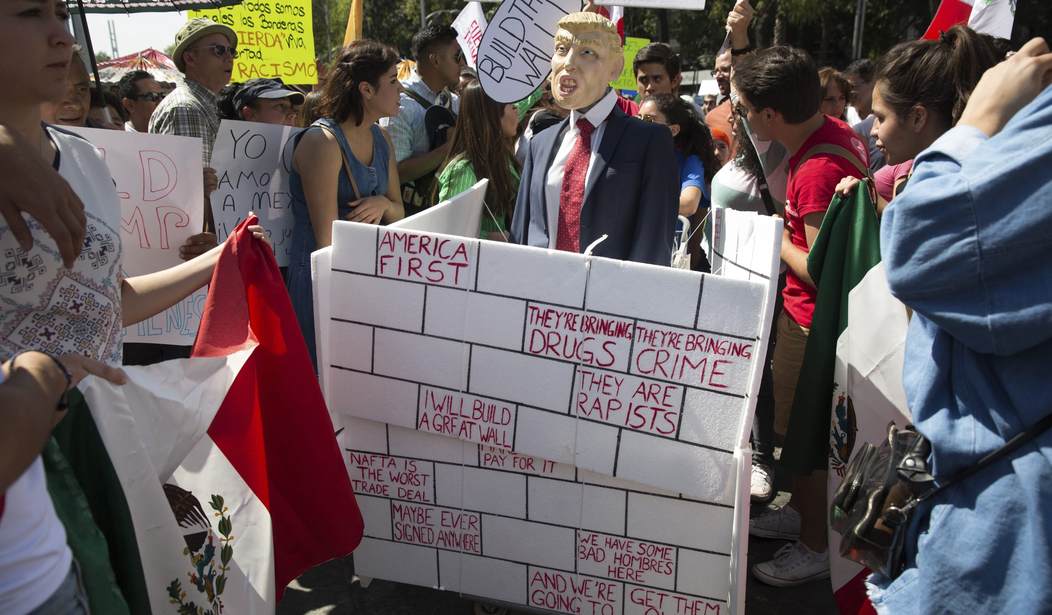WASHINGTON — Former New Mexico Gov. Bill Richardson told a Senate panel Wednesday that the U.S.-Mexico relationship is “in tatters” despite being one of the three most important global relationships that America needs to maintain.
“I’m extremely concerned that we’re heading into a period where the issue of paying for the wall, the building of the wall, the NAFTA negotiation, the threat of an import tax, the deportations” worsen the relationship, Richardson told the Senate Foreign Relations Subcommittee on the Western Hemisphere.
The former U.S. ambassador to the United Nations said he worries not just about the “shaky” relationship between the two countries’ governments but about “the relationship between the American people and the Mexican people.”
“There is resentment. There is — they feel insulted, the Mexican people. I spend quite a bit of time there,” Richardson added. “My sister lives there. And I’m concerned.”
Emphasizing areas of U.S.-Mexico cooperation from criminal apprehensions to airline security, he noted that “not a single terrorist act has been committed in the United States by anyone that entered via the Mexican border.”
“On the economic front, we trade approximately five times as much with Mexico as we do with Great Britain,” he said. “Five times as much. Mexico’s our third-largest trading partner. Mexico’s our second-largest export market. And Mexicans buy more American goods than Japan, Germany, South Korea, and Great Britain combined.”
Twenty-three states “count Mexico as their number one or number two export market.”
Roger Noriega of the American Enterprise Institute, former assistant secretary of State for Western Hemisphere Affairs in the George W. Bush administration, said the U.S. “cannot formulate an effective anti-drug strategy, including a plan to confront the opioid crisis, without intense support of Mexican authorities who are the last line of defense against legal drugs and immigrants bound for our Southwest border.”
“In recent years, not many folks would realize, Mexican migration authorities have interdicted 560,000 persons – mostly illegal immigrants from Central America who are headed for our border. That’s half a million people who didn’t have a chance to test our resources on that border,” Noriega said.
He noted that it’s “interesting that in recent months” Mexican officials “have not overreacted to the anti-Mexican rhetoric.”
“Instead, they have looked to open new channels — more serious dialogue, more reflective — based on information about the important relationship that we have. Because I think they realize that those who stand to gain from bad relationships between the United States and Mexico are those same people in Mexico who disparage the economic relationship and nationalists who criticize cooperation with U.S. law enforcement and migration authorities.”
Chairman Marco Rubio (R-Fla.) said it’s easy to overlook nationalism in Mexico and appreciate that the country “is not just a democracy but a vibrant one.”
Rubio stressed the danger of a Mexican populist leader — a “Hugo Chavez-type leader” — winning in the July 2018 presidential election in response to Mexican frustration with President Trump’s rhetoric. “Right on our borders,” the senator added. “Something we have never faced in modern history of this country.”
Richardson said “modernization” of NAFTA needs to happen sooner than later to avoid being dragged into Mexico’s presidential campaign season. “You want to get the issues resolved in a way that they don’t give impetus to any one candidate,” he said. “And the U.S.-Mexico relationship is right now very fragile.”
Noriega agreed that “some of the rhetoric, the ill-informed characterizations of our relationships with Mexico and that Mexico’s taken advantage of us somehow under NAFTA or that Mexico is forcing — literally that was the word used ‘forcing’ — criminal elements to come over the border to prey on our people has a very serious negative impact on the relationship between our two peoples.”
“I’m sure really everyone here would probably agree with this, the anxiety among the American people about lost jobs, about illegal immigration is genuine anxiety that’s been tapped into,” he added. “The problem we have to face as a country in a bipartisan, really nonpartisan way is how do we address that anxiety for our mutual benefit? And — and I think there has to be an essential understanding that with global trade you can find win-wins generally in trade agreements.”
Sen. Bob Menendez (D-N.J.) said when “comments are made in the United States by its leaders that ultimately are incendiary about Mexicans, it drives the poll numbers of its …left-wing candidate in a way that is ultra-nationalism.”
“So if shared responsibility is our goal, the last thing you want to do is to drive the Mexican people to someone out of resentment, not out of hope, that ultimately won’t engage in shared responsibility at the end of the day,” he said.
Richardson said Trump needs to meet with President Enrique Peña Nieto and send a message of “treating Mexico as an equal partner, not as a subordinate.”









Join the conversation as a VIP Member